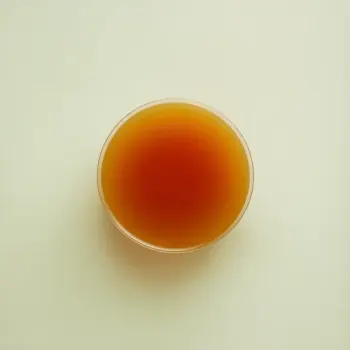White Wine and Vegetable Broth are two distinct ingredients used in cooking to enhance flavors, with white wine adding acidity and complexity and vegetable broth providing a savory base. They can be used in risottos, sauces, and soups, with broth being a non-alcoholic substitute for wine.

White wine is an alcoholic beverage made by fermenting the juice of white grapes. It's commonly used in cooking to add acidity, depth, and flavor to dishes.

Vegetable broth is a savory liquid made by simmering vegetables, herbs, and spices. It's a staple in vegetarian cooking and serves as a flavorful base for soups, sauces, and other dishes.
White wine offers a complex flavor profile including acidity and fruitiness, along with varying degrees of sweetness depending on the type. Vegetable broth, on the other hand, provides a hearty, earthy base that enhances the natural flavors of the ingredients it's paired with. The broth is non-alcoholic and can be a suitable option for those avoiding alcohol, while white wine is alcoholic and can add a distinctive taste to cooked dishes.

Your ultimate Recipe Box, Meal Planner, and Cooking Class all in one
In risotto, white wine is used to deglaze the pan and provide a sharp, acidic contrast to the creaminess of the rice. Typical recipes include mushroom risotto and seafood risotto. Vegetable broth is the primary liquid used in risotto to cook the rice and impart a rich, savory flavor. It's especially suitable for vegetarian versions like garden vegetable risotto.
White wine is often reduced in sauces to concentrate its flavor, adding a brightness that complements dishes like chicken piccata or white wine and garlic sauce. Vegetable broth can be used as a base for many sauces, particularly when a lighter, more herbaceous flavor is desired, such as in a vegetable gravy or a vegan béchamel sauce.
A splash of white wine can add complexity to soups, such as a classic French onion soup or a creamy chowder, enhancing the overall flavor profile. Vegetable broth is the foundation of many soups, providing a full-bodied taste and richness without overwhelming the other ingredients, as seen in minestrone or lentil soup.
White wine typically contains calories from alcohol, while vegetable broth is usually lower in calories and contains more nutrients from the vegetables.
| Nutrient | White Wine ( per Cup ) | Vegetable Broth ( per Cup ) |
|---|---|---|
| Fat | 0g | 0g |
| Sodium | 10mg | 860mg |
| Calcium | 10mg | 20mg |
| Protein | 0.1g | 0g |
| Calories | 192 | 12 |
| Carbohydrates | 5.2g | 3g |
Yes, vegetable broth can be used as a substitute for white wine in many recipes, especially if you're avoiding alcohol. Consider adding a bit of vinegar or lemon juice to replicate the acidity.
While cooking with wine does reduce the alcohol content significantly, it doesn't completely eliminate it. If you're concerned about alcohol, it's best to use a non-alcoholic substitute like vegetable broth.
Not all white wines are vegan, as some are clarified with animal-derived products. Look for wines labeled as vegan if this is a concern.
Dry, crisp white wines like Sauvignon Blanc or Pinot Grigio are generally the best choices for cooking, as they provide balance without overwhelming flavors.
Homemade vegetable broth can last in the fridge for 4-5 days. Store-bought broth can last longer, depending on the preservatives used, so check the label for an expiration date.